- 1. Understanding Sensitive Teeth and Their Causes
- 2. Daily Care Tips for Sensitive Teeth
- 3. The Best Toothpaste for Sensitive Teeth
- 4. Professional Treatments for Sensitive Teeth
- 5. Lifestyle Changes to Help Manage Sensitive Teeth
1. Understanding Sensitive Teeth and Their Causes
Sensitive teeth can be a common and uncomfortable issue, affecting millions of people worldwide. The pain often occurs when consuming hot, cold, sweet, or acidic foods and beverages, making it difficult to enjoy everyday meals. The underlying cause of tooth sensitivity can vary, but typically it occurs when the protective enamel of the teeth wears down or when the gums recede, exposing the sensitive parts of the teeth, including the dentin.
Other factors that may contribute to sensitive teeth include gum disease, tooth decay, and aggressive brushing. It’s important to understand what triggers your tooth sensitivity in order to address the issue effectively.
2. Daily Care Tips for Sensitive Teeth
Managing sensitive teeth starts with adjusting your daily oral care routine. Here are some tips that can help reduce sensitivity and protect your teeth:
- Use a Soft-Bristled Toothbrush: A soft-bristled toothbrush is gentler on your teeth and gums, reducing irritation and the risk of enamel wear. Be sure to brush gently to avoid aggravating sensitivity.
- Brush with the Right Technique: Avoid brushing your teeth too aggressively. Use small, circular motions to remove plaque without causing damage to your enamel.
- Avoid Acidic Foods and Drinks: Foods and drinks like citrus fruits, soda, and wine can erode enamel and increase sensitivity. Try to minimize these in your diet, or rinse your mouth with water after consuming them.
- Floss Daily: Flossing helps remove plaque and food particles between teeth that a toothbrush can't reach. This can help prevent gum recession and further sensitivity.
Incorporating these simple steps into your daily routine can make a significant difference in managing sensitive teeth and preventing discomfort.
3. The Best Toothpaste for Sensitive Teeth
Choosing the right toothpaste is key to managing sensitive teeth. Toothpaste formulated specifically for sensitive teeth contains ingredients like potassium nitrate or strontium chloride, which help to block the pathways that lead to the nerves in your teeth. These ingredients work over time to reduce sensitivity and provide long-term relief.
When selecting a toothpaste for sensitive teeth, look for products that are gentle on enamel and offer protection from sensitivity without being overly abrasive. Some popular brands include Sensodyne, Colgate Sensitive, and Parodontax. Consult with your dentist to find the best option for your needs.
4. Professional Treatments for Sensitive Teeth
If your tooth sensitivity persists despite at-home care, professional treatments from your dentist may be necessary. Here are a few options to explore:
- Fluoride Treatment: A dentist can apply fluoride gel to the sensitive areas of your teeth to help strengthen enamel and reduce pain.
- Desensitizing Agents: Dentists can use special desensitizing agents to help block the nerve endings inside your teeth and reduce sensitivity.
- Dental Sealants: Dental sealants can be applied to the chewing surfaces of teeth to provide a protective barrier and prevent sensitivity caused by exposure to hot or cold stimuli.
- Gum Grafting: In severe cases where gum recession is a factor, a gum graft may be necessary to cover the exposed roots and reduce sensitivity.
Consult with your dentist to determine which treatment is right for you, as these professional options can provide targeted relief for sensitive teeth.
5. Lifestyle Changes to Help Manage Sensitive Teeth
Along with your oral care routine, making certain lifestyle changes can help alleviate tooth sensitivity:
- Quit Smoking: Smoking can contribute to gum disease and tooth decay, which may worsen sensitivity. Quitting can improve overall oral health and reduce discomfort.
- Manage Stress: Stress can lead to teeth grinding (bruxism), which can wear down enamel and worsen tooth sensitivity. Practice stress-relief techniques like meditation, yoga, or regular exercise.
- Wear a Mouthguard: If you grind your teeth at night, a custom mouthguard can protect your teeth from wear and tear and reduce sensitivity caused by grinding.
By incorporating these lifestyle changes, you can improve the health of your teeth and gums and further reduce the impact of sensitive teeth.

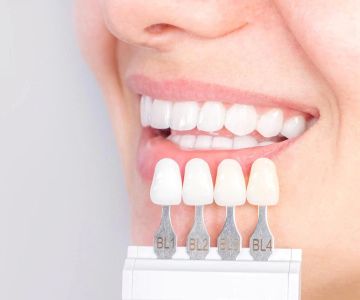

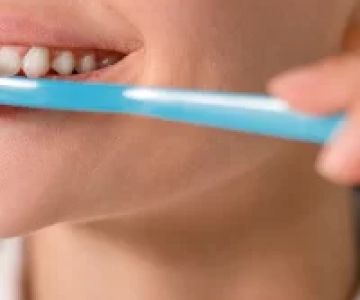
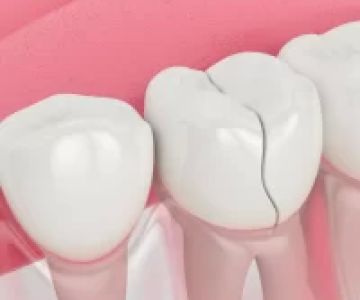
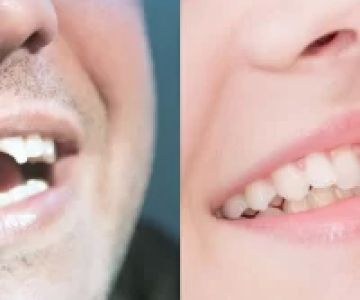
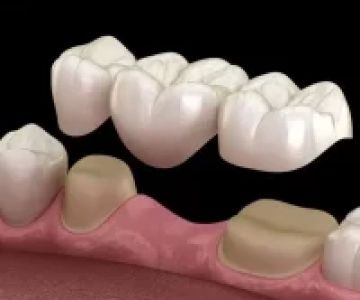
 Westgate Dental Arts
Westgate Dental Arts Coventry Family Dental
Coventry Family Dental Familia Dental
Familia Dental Dr. Daniel S. Fife, DDS
Dr. Daniel S. Fife, DDS Dentistry At Suburban Square: Michael I. Wollock, DMD
Dentistry At Suburban Square: Michael I. Wollock, DMD Comfort Care Dental
Comfort Care Dental The Importance of Oral Health Education During Pregnancy for a Healthy Pregnancy
The Importance of Oral Health Education During Pregnancy for a Healthy Pregnancy Why Skipping Dental Checkups Can Lead to Bigger Oral Health Problems
Why Skipping Dental Checkups Can Lead to Bigger Oral Health Problems Advantages of Porcelain Dental Restorations
Advantages of Porcelain Dental Restorations Best Tips for Brushing Your Teeth Properly for Healthy Gums: Essential Techniques for Oral Health
Best Tips for Brushing Your Teeth Properly for Healthy Gums: Essential Techniques for Oral Health How Can Diabetes Cause Tooth and Gum Problems? Preventing and Managing Oral Health Issues
How Can Diabetes Cause Tooth and Gum Problems? Preventing and Managing Oral Health Issues Healthy Habits for Promoting Good Oral Health and Hygiene: Tips for a Healthy Smile
Healthy Habits for Promoting Good Oral Health and Hygiene: Tips for a Healthy Smile